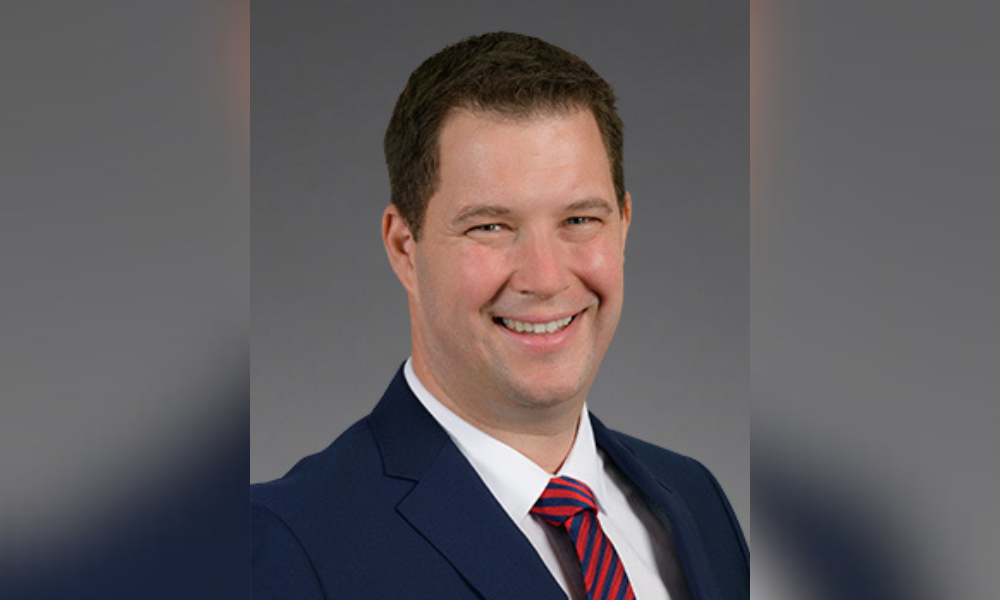
Stephen Hardy of K&L Gates to offer insights for HR at upcoming Employment Law Masterclass

Employers who ignore the effects of psychosocial pressures on their workers – including anxiety, stress and depression, among others – may find themselves prone to increased regulatory actions.
Stephen Hardy, partner in labour, employment and workplace safety at K&L Gates, said psychosocial hazards and risk arise from work design, environment and interactions, and they can lead to significant claims with higher average payments and longer absences.
“The data show that [psychosocial] claims, when compared to physical claims, result in a significantly increased average payment per claim to an injured worker and a significantly increased amount of average weeks lost at work or absence from work,” Hardy told HRD.
“If someone suffers a broken leg or broken arm, they might be on absent six to eight weeks. If it is psychological or psychological and physical, it can go up to 30 weeks.”
According to WorkSafe, psychosocial hazard arises from or relates to four things:
A psychosocial risk is to the affect to a worker’s mental health arising from a psychosocial hazard.
“The traditional focus of dealing with psychological health is it being a private matter, a matter of individual resilience, where traditional management tools have included employee assistance programs, counselling, sick leave, compassionate leave and investigations of incidents when they arise,” he said.
“The new and emerging focus is to get ahead of something going wrong, to take a risk-based approach and ask, ‘What in our particular organisation could cause stress?’”
Hardy, who will be speaking at HRD’s Employment Law Masterclass in Sydney on 19 November, said although psychosocial hazards are present across the board, certain sectors stand out. Law, finance and insurance are overrepresented, he said, with nursing and teaching also known for high burnout rates.
Emotional strain can also affect workers in more traditional heavy industries, like mining and construction, where the focus has been on physical effects because of the nature of the work, he said. It’s time for employers to face up to their responsibility.
“You’ve got to be a little bit careful in those environments, where people might not want to show vulnerabilities,” Hardy said. “It’s not a safe space to be to raise this stuff, which is why it doesn’t get the airtime.”
Any tradition of machismo should not diminish the fact that psychosocial hazards and risks are very present in those industries, he said.
“There’s a real opportunity to be taking these measures and implementing them not only in the more traditional industries [such as teaching, nursing, law, finance, etc] but in your more physical traditional industries,” Hardy said. “There is probably a greater amount of work to do to make this a focus area to plan and design [better practices] in construction work, mining work, manufacturing – those sorts of industries.”
Employers are obliged under the work health and safety laws to make sure a company’s response to psychosocial hazards and risks is satisfactory. Directors must take the responsibility seriously, he said.
“They need to be satisfied that their companies are proactively and meaningfully grappling with this important focus area,” Hardy said. “It’s a flow-on effect that the directors responsible for those companies are required to exercise due diligence to make sure the company is doing what it ought to be doing.”
The inclusion of positive duty in the Sex Discrimination Act, to prevent sexual harassment in the workplace, dovetails with psychosocial hazards when it becomes a work health and safety issue, he said.
“Zero tolerance or being proactive means a positive duty to stamp out bad behaviours across the workplace,” Hardy said. “When you do that, you’re also reducing psychosocial hazards and risks in the workplace – someone who is subjected to sexual harassment or bad workplace behaviours like that has a real likelihood of suffering a psychological condition.”
Solutions to reduce the deleterious effects of anxiety, fatigue and stress on workers could include redesigning a job and its demands, he said. Could the management approach be improved, demands made more flexible, or workers allowed more autonomy or made to feel less isolated?
“The idea is that people get together and consult – that’s an important word. You consult and come up with ideas; recognize the management style; get some feedback and be open to that,” he said.
If a workplace hashes through issues, workers and management might identify some processes as a psychosocial hazard.
Over the past two years, the Commonwealth, states and territories have paid more attention to the psychological aspect of health and safety, with codes of practice introduced around the management psychosocial hazards in the workplace, Hardy said. Victoria is still a work in progress, but implementation is expected.
At the Employment Law Masterclass Sydney on 19 November, Hardy will discuss the topic: “Managing psychosocial hazards at work”. He will talk about the importance of employers understanding their ability to manage changing obligations and remain compliant with workplace health and safety laws to mitigate psychosocial hazards.
The session will examine scenarios at work and provide guidance on mitigating risks to prevent non-compliance, including lessons from the Court Services Victoria OHS Act breach and FWO v CFMMEU and ors (No 2) [2023].
Want to learn more about upcoming changes to employment law and legislation? Register for HRD’s Employment Law Masterclass here.